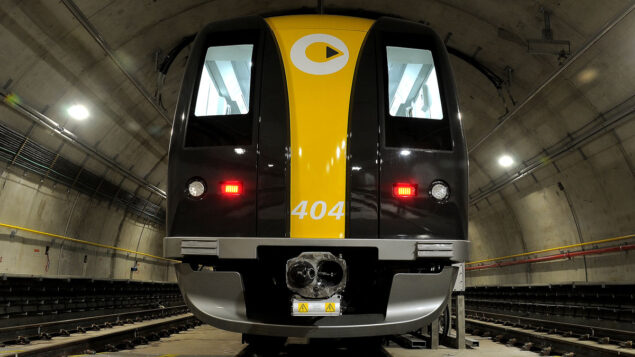CCR today released its 2035 strategic vision – promising to grow its EBITDA at a rate of 8% to 10% annually, while keeping leverage under control at 2.5x to 3.5x EBITDA.
Hey guidance It was announced during the infrastructure giant’s Investor Day, which was held earlier today in São Paulo.
CCR also said it expects revenue from its adjacent businesses – such as retail, Real estate And advertisements – representing more than 10% of Top line By 2035, compared to 6% today.
Other commitments: Reducing operating expenses/net revenues from the current 40.3% to 38% in 2026 and to 35% in 2035, and achieving the goal Total shareholder return Above the cost of capital and maintenance He will spend 50% of net profit.
CEO Miguel Setas said the numbers should be seen as a “directional view” of the business, “of the path we will take”.
“But planning cycles are getting shorter and shorter, so naturally adjustments will need to be made along the way,” he added.
The CEO said the assumptions behind EBITDA growth include organic expansion of current assets, which will come from economic growth; Extending some existing contracts, especially in the field of urban mobility; And the acquisition of new assets in auctions scheduled for the coming years.
“All of this constitutes growth. But this is a more conservative scenario, with a slower pace of acquiring new assets.” If the acquisition of new businesses is larger, EBITDA growth could rise to the level Low double digits“.
Over the next few years, there are more than R$190 billion in new projects to be rolled out in the company’s areas of activity: highways, airports and urban mobility (metro, trains and VLT).
However, Setas said CCR will be very “selective” in choosing which assets it will invest. “Every real investor dollar will be used with extreme financial discipline,” the CEO said.
To venture into new projects, CCR said one alternative would be to recycle capital. The company has estimated that it will be able to recycle between R$5 billion and R$10 billion in the coming years – most of this coming from the sale of a minority stake in the company’s urban mobility platform.
CCR is also evaluating the sale of certain assets that no longer make sense from a risk and geographic perspective, as well as seeking minority partners in specific assets.
“The vast majority of resources will come from the urban mobility platform and airports. In the mobility space, we want to bring in a relevant partner to increase the platform’s ability to invest and grow. In airports, our idea is to contribute our platform within another and be part of A larger global platform.
The executive said there were two goals behind recycling capital: In addition to freeing up resources for new investments, it would highlight the true value of the company’s assets.
The CFO also detailed where the cost reduction would come from. According to him, CCR has identified tools that would generate a reduction of R$500 million by 2026 – including better management of energy costs, outsourcing of some activities, reviewing platform structures and investing in new technologies, such as robotics and automation.
“It’s the ants’ job. There are no silver bullets. But we already have 100 initiatives identified and we will continually manage to make that happen.
At the event, CCR also provided details of its negotiations with the donor to rebalance some contracts.
Vice President of Legal, Roberto Pena, said that last year alone the company was able to close 10 rebalancing operations, which totaled R$2.8 billion – and according to him, there are still more to come.
“It is normal in a franchise environment to create regulatory obligations, and negotiating a rebalancing is a constant task for business platforms. So, we have expectations for a new rebalancing this year,” the executive said.
From a contractual de-risking standpoint, one of the most relevant topics for the company today is MSVia, an asset that was detracting from the score.
Roberto said a large-scale renegotiation of the contract with the state government, with new definitions and terms, is being negotiated. “it will be Eliminate risks The current contract and the signing of another completely new contract.”
Pedro Arbex

“Hardcore beer fanatic. Falls down a lot. Professional coffee fan. Music ninja.”






More Stories
Sabesp Receives Brazil Innovation Value Award 2024 • PortalR3
Total formal job creation reached 201.7 thousand in June, up 29.6% | Economy
10,000 Brazilian Reals are waiting for you at Nubank? Find out who can get this money!